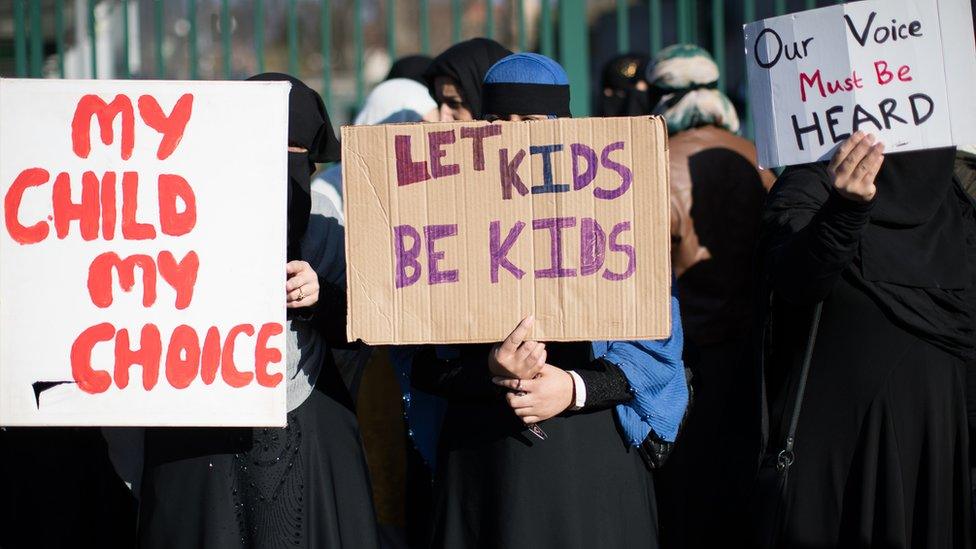LGBT teaching row: Call for larger exclusion zone
- Published
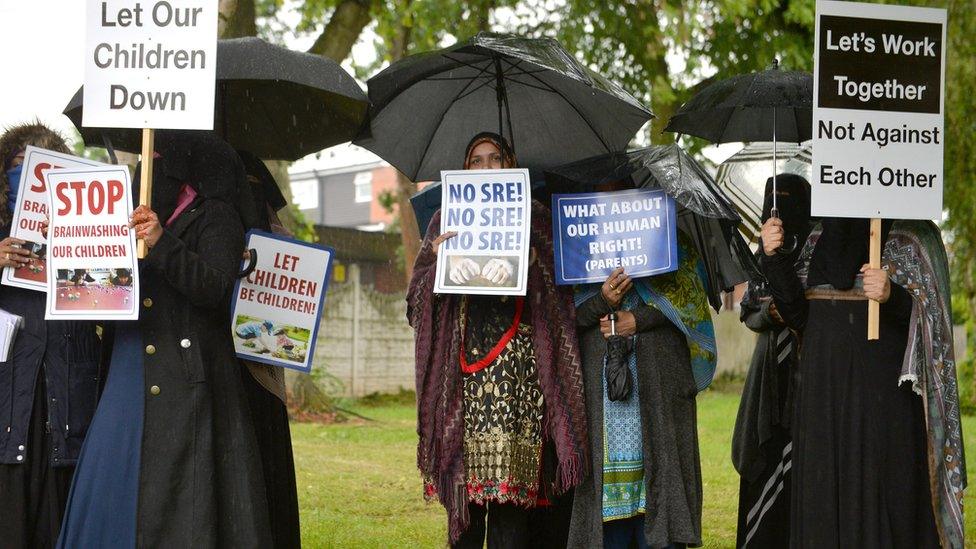
Protests have continued around Anderton Park Primary School
A bigger exclusion zone may be needed around a school due to ongoing protests against teaching of LGBT relationships, a court heard.
The High Court granted a temporary injunction against protests outside the school gates at Anderton Primary School in Birmingham.
Birmingham City Council is making an application for it to be made permanent.
At a court hearing it said protests were disrupting pupils' education.
The school, in Balsall Heath, has been at the centre of a campaign against teaching about LGBT relationships, led by some parents and activists who say it is in conflict with their "religious beliefs and family values".
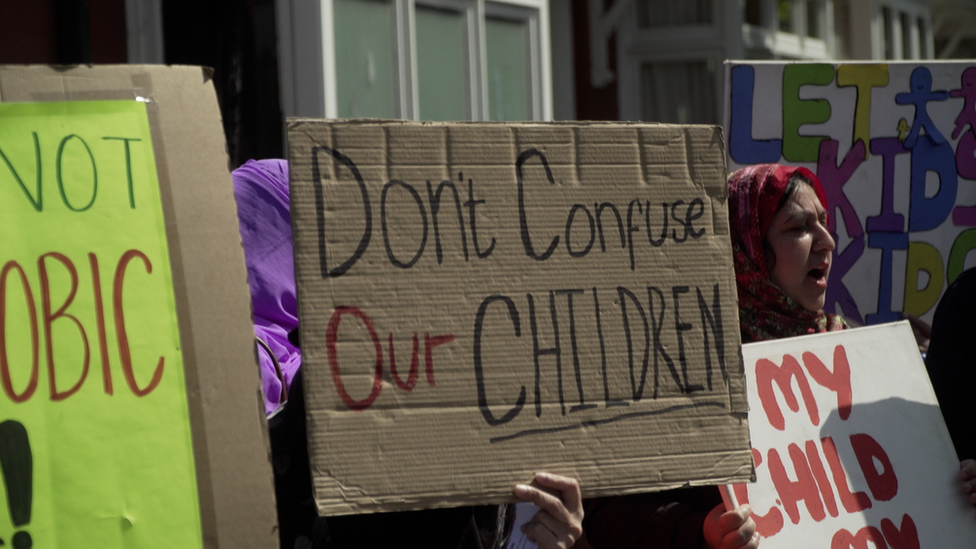
The exclusion zone prevents protests outside the school gates
The original High Court injunction was put in place on 31 May, banning demos outside the school and, in June, it was decided a hearing would take place to decide whether it could continue.
Opening the case at Birmingham's Priory Courts, Jonathan Manning QC for Birmingham City Council said a permanent order was needed, potentially with a larger exclusion area, because noisy protests outside the current zone meant some children were still unable to use the playground.
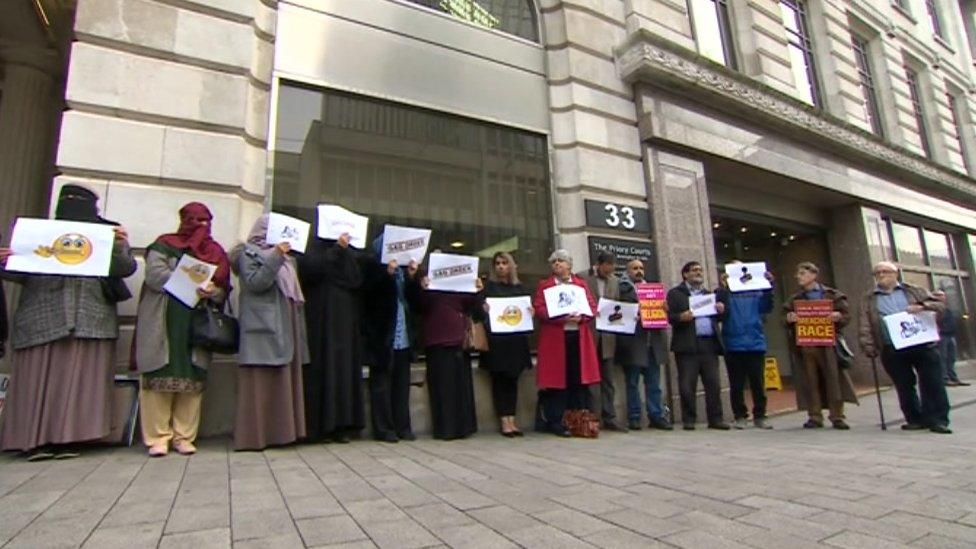
Demonstrators gathered outside the High Court in Birmingham before the hearing
The council's legal team also said "untrue allegations" - described as "hurtful" and "harmful" - about what the school was teaching were being made on social media in an "inflammatory way".
The school's head teacher Sarah Hewitt-Clarkson told the hearing the first time she met protester Shakeel Afsar in her office, he slammed his hand on her desk, made demands and was aggressive.
He is among those named on the injunction along with his sister Rosina Afsar.
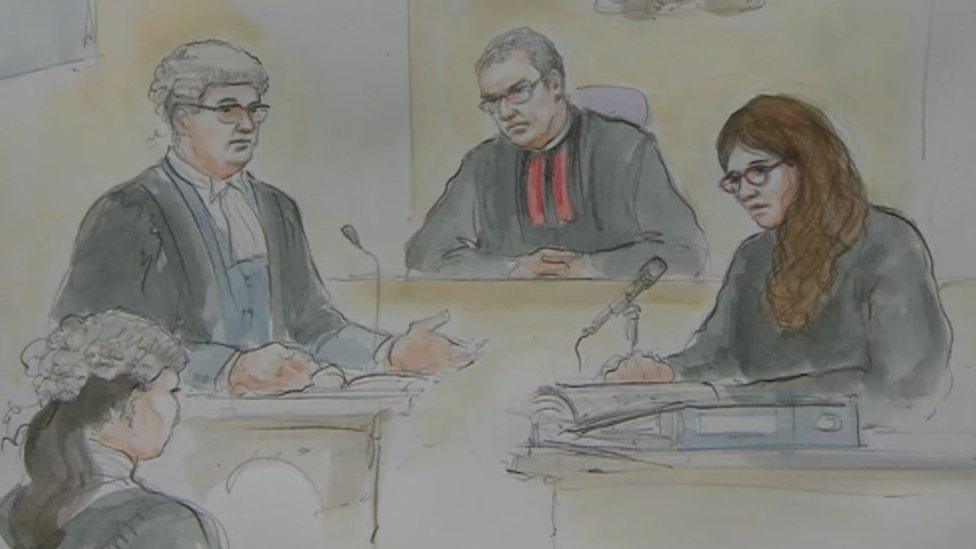
Head teacher Sarah Hewitt-Clarkson described the protests as "unprecedented" in court
Ms Hewitt-Clarkson also rejected claims that pupils' parents had not been consulted collectively.
Asked if she considered story books, including one called Princess Boy, would cause objections amongst some Muslim parents, she said: "There is tension from some Muslims, but not many," adding, "I have letters from Muslims who do not agree with the protesters".
Ms Hewitt-Clarkson described the demonstrations as "unprecedented" and an "awful time".
Birmingham City Council's director for neighbourhoods Robert James said the injunction was a response to protesters' "behaviour" causing harm and distress, and safety concerns, including those of road users.
"It's not about the issue of the protest, it's the manner in which they were conducted," he told the court.
The hearing is expected to finish on Friday.

Follow BBC West Midlands on Facebook, external, on Twitter, external, and sign up for local news updates direct to your phone., external
- Published9 October 2019
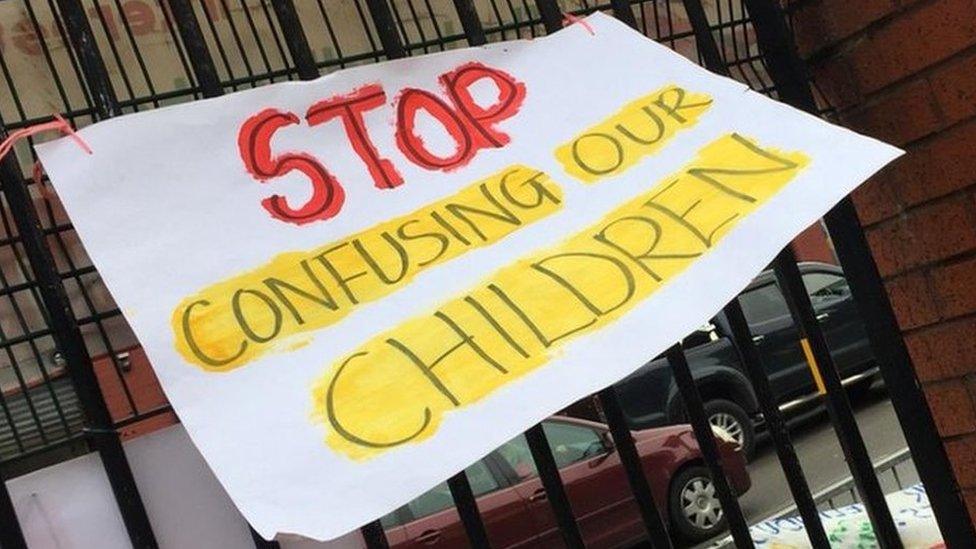
- Published10 June 2019
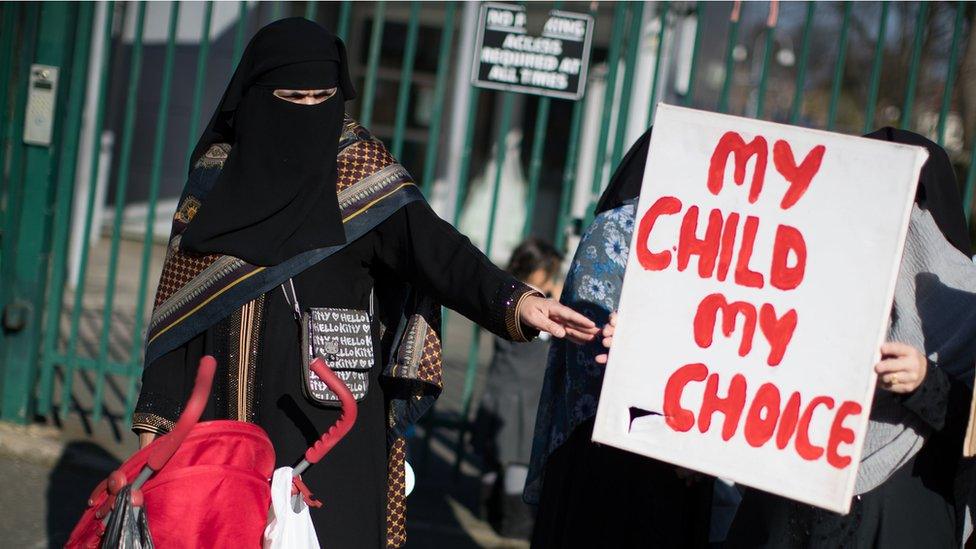
- Published31 May 2019
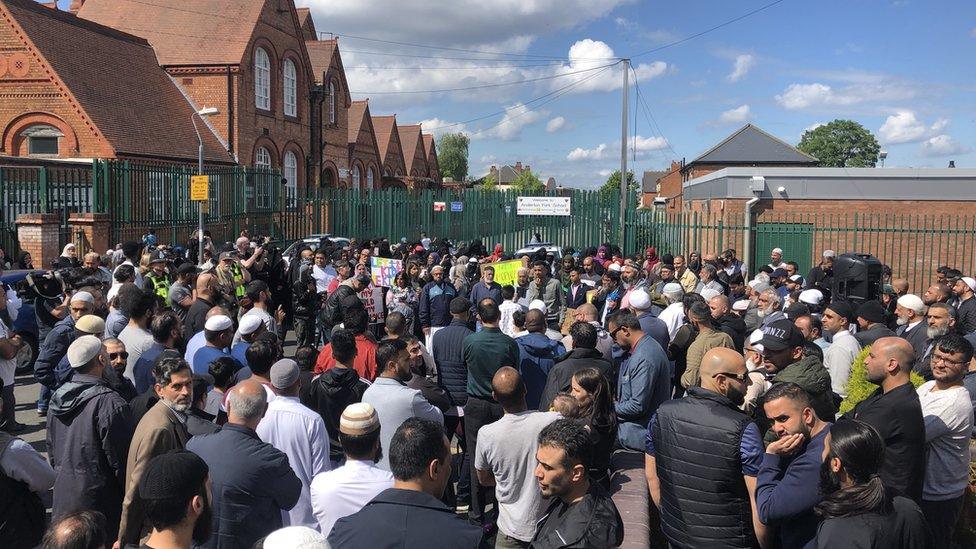
- Published20 September 2019
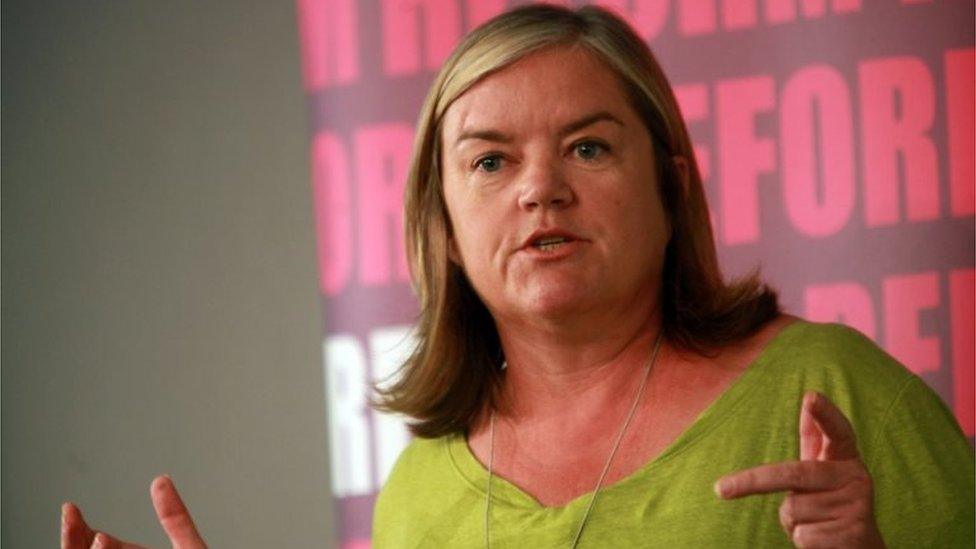
- Published10 September 2019
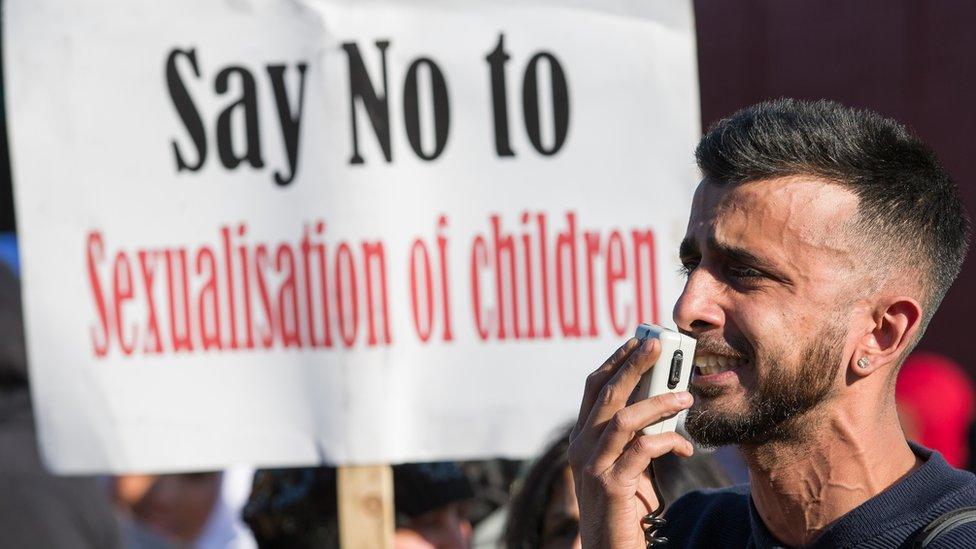
- Published1 August 2019
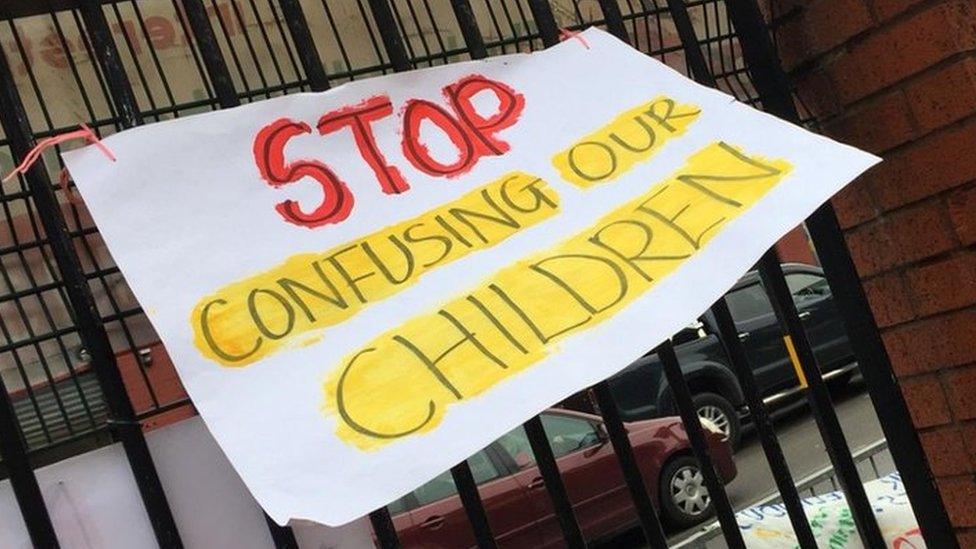
- Published26 July 2019

- Published8 July 2019
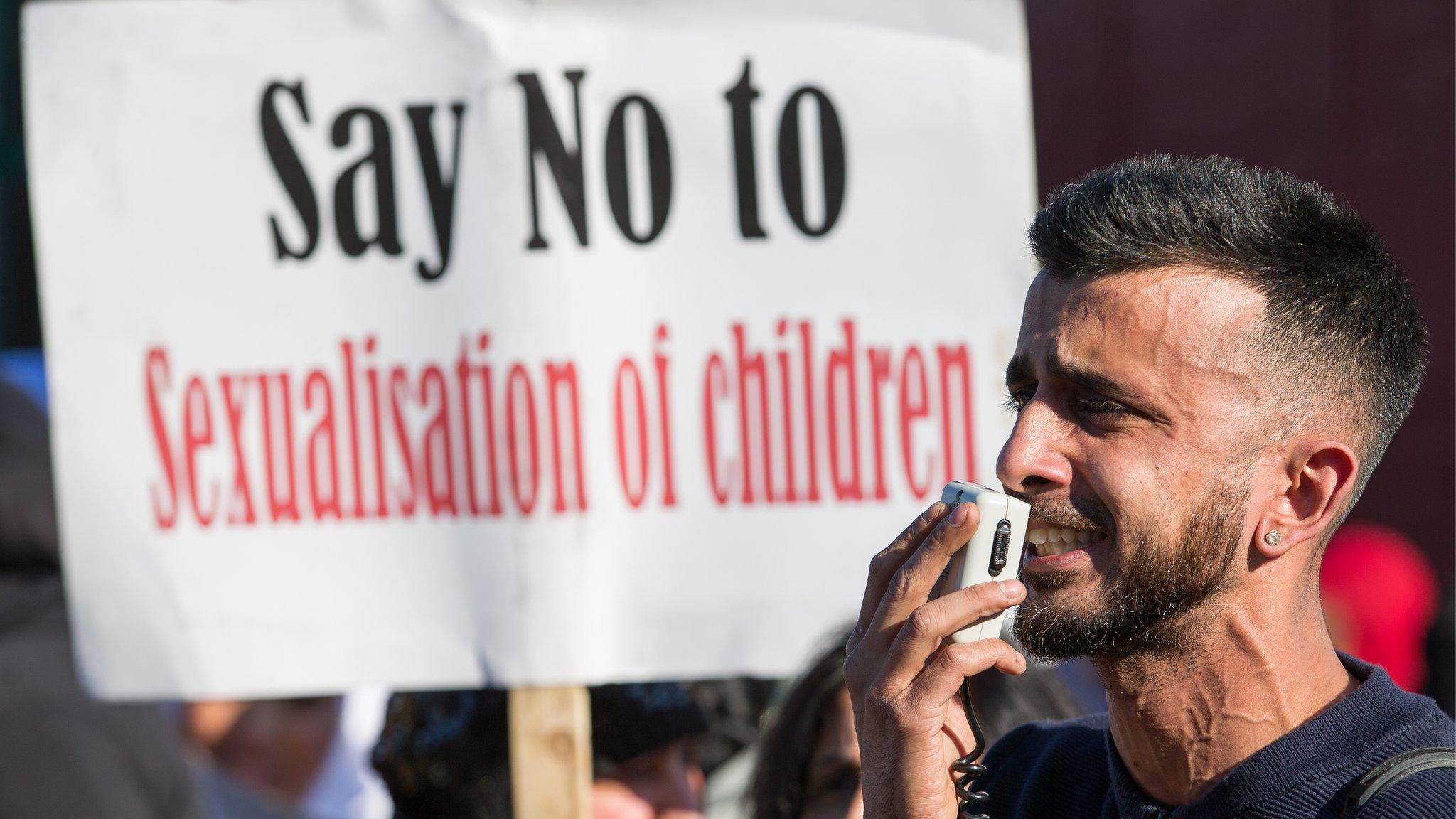
- Published25 May 2019
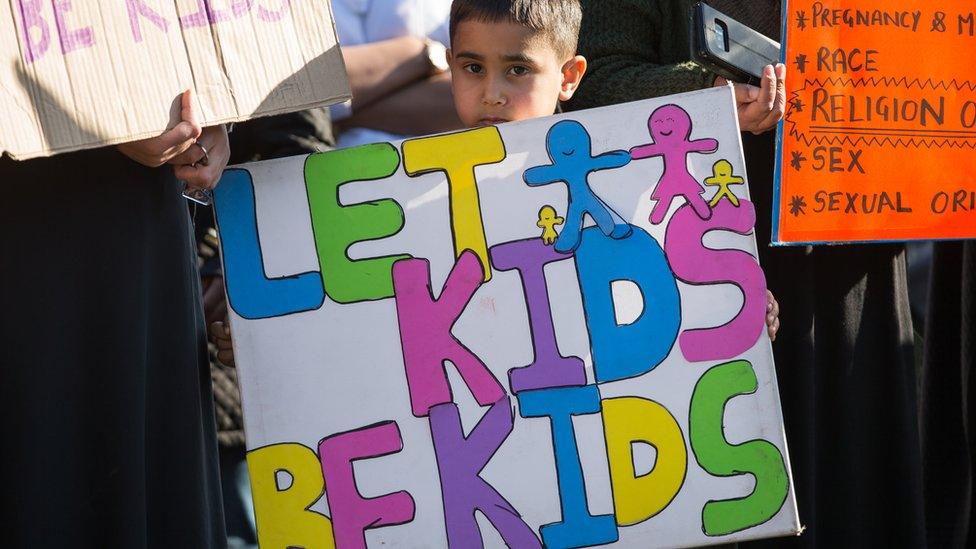
- Published22 May 2019
